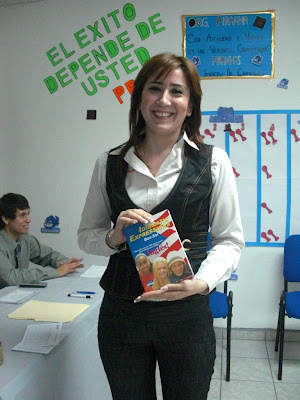Plural Verbs with Singular Subjects
We often use singular nouns that refer to groups of people (for example: team, government, committee) as if they were plural.This is because we often think of the group as people, doing things that people do (eating, wanting, etc).
In such cases, we use:
- plural verb
- they (not it)
- who (not which)
Here are some examples:
- The committee want sandwiches for lunch. They have to leave early.
- My family, who don't see me often, have asked me home for Christmas.
- The team hope to win next time.
Here are some examples of words and expressions that can be considered singular or plural:
- choir, class, club, committee, company, family, government, jury, school, staff, team, union, the BBC, board of directors, the Conservative Party, Manchester United, the Ministry of Health
But when we consider the group as an impersonal unit, we use singular verbs and pronouns:
- The new company is the result of a merger.
- An average family consists of four people.
- The committee, which was formed in 1999, is made up of four men and four women.
Notice that this is often a question of style and logic. The important thing is to be consistent.
The indefinite pronouns anyone, everyone, someone, no one, nobody are always singular and, therefore, require singular verbs.
- Everyone has done his or her homework.
- Somebody has left her purse.
Some indefinite pronouns — such as all, some — are singular or plural depending on what they're referring to. (Is the thing referred to countable or not?) Be careful choosing a verb to accompany such pronouns.
- Some of the beads are missing.
- Some of the water is gone.
The pronouns neither and either are singular and require singular verbs even though they seem to be referring, in a sense, to two things.
- Neither of the two traffic lights is working.
- Which shirt do you want for Christmas?
Either is fine with me
THE ACTIVITY
- The board of directors ______ to discuss about the new work system. _________ to be on time for the meeting. (Need)
- The soccer has been hired to play for the Manchester United, ___________ make it official next Monday. (Will)
- Now the whole crowd of people ____ praying outside at the hour of the incense offering.
- Each of the students ______responsible for doing his or her work in the library.
- Everyone ____ to make 30 minutes of walking.
By:
Michelle Limón


 Lectura de las Cartas de Opinión por parte de los usuarios recomendando ampliamente el sistema FAST & EASY
Lectura de las Cartas de Opinión por parte de los usuarios recomendando ampliamente el sistema FAST & EASY


 Anette Fontes ganadora del 3er kit en la rifa
Anette Fontes ganadora del 3er kit en la rifa Grupo de Usuarios que Recibieron su certificación y el quipo de monitoría
Grupo de Usuarios que Recibieron su certificación y el quipo de monitoría Equipo de Monitoría Filial Mexicali
Equipo de Monitoría Filial Mexicali






















.jpg)



